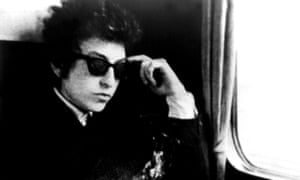Tuesday, 25 October 2016
Thursday, 13 October 2016
NOBEL PRIZE IN LITERATURE WON BY BOB DYLAN
For more than six decades he has remained a mythical force in music, his gravelly voice and poetic lyrics musing over war, heartbreak, betrayal, death and moral faithlessness in songs that brought beauty to life’s greatest tragedies.
But Bob Dylan’s place as one of the world’s greatest artistic figures was elevated further on Thursday when he was named the surprise winner of the Nobel prize in literature “for having created new poetic expressions within the great American song tradition”.
After the announcement, the permanent secretary of the Swedish Academy, Sara Danius, said it had “not been a difficult decision” and she hoped the academy would not be criticised for its choice.
“We hoped the news would be received with joy, but you never know,” she said, comparing the songs of the American songwriter to the works of Homer and Sappho.
“We’re really giving it to Bob Dylan as a great poet – that’s the reason we awarded him the prize. He’s a great poet in the great English tradition, stretching from Milton and Blake onwards. And he’s a very interesting traditionalist, in a highly original way. Not just the written tradition, but also the oral one; not just high literature, but also low literature.”
Though Dylan is considered by many to be a musician, not a writer, Danius said the artistic reach of his lyrics and poetry could not be put in a single box. “I came to realise that we still read Homer and Sappho from ancient Greece, and they were writing 2,500 years ago,” she said. “They were meant to be performed, often together with instruments, but they have survived, and survived incredibly well, on the book page. We enjoy [their] poetry, and I think Bob Dylan deserves to be read as a poet.”

Born Robert Allen Zimmerman in Duluth, Minnesota, in 1941, Dylan got his first guitar at the age of 14 and performed in rock’n’roll bands in high school. He adopted the name Dylan, after the poet Dylan Thomas, and, drawn to the music of Woody Guthrie, began to perform folk music.
He moved to New York in 1961, and began performing in the clubs and cafes of Greenwich Village. His first album, Bob Dylan, was released in 1962, and he followed it up with a host of albums now regarded as masterpieces, including Blonde on Blonde in 1966, and Blood on the Tracks in 1975.
He is regarded as one of the most influential figures in contemporary popular culture, though his music has always proved divisive. Speaking last year, Dylan said: “Critics have been giving me a hard time since day one.”
His own response to receiving the prize is unknown. He rarely gives interviews, and has a troubled relationship with the fame attached to his decades of popularity. However, he has toured almost non-stop since 1988 and last weekend he played the inaugural Desert Trip festival in California, alongside other giants of the 1960s, the Rolling Stones, the Who, Paul McCartney and Neil Young.
Among the musical, literary and even academic communities, respected figures expressed their delight at Dylan’s Nobel prize. The author Salman Rushdie told the Guardian he was delighted with Dylan’s win and said his lyrics had been “an inspiration to me all my life ever since I first heard a Dylan album at school”.
“The frontiers of literature keep widening, and it’s exciting that the Nobel prize recognises that,” Rushdie said. “I intend to spend the day playing Mr Tambourine Man, Love Minus Zero/No Limit, Like a Rolling Stone, Idiot Wind, Jokerman, Tangled Up in Blue and It’s a Hard Rain’s Gonna Fall.”
Musician Jarvis Cocker said Dylan was a “great choice” and highlighted the 1963 track Don’t Think Twice, It’s Alright as a personal favourite. “It’s a great break-up song: he’s making light of it but one or two little digs show that he is actually a bit upset,” Cocker said. “I think Dylan’s sense of humour is often overlooked.”
Subscribe to:
Posts (Atom)